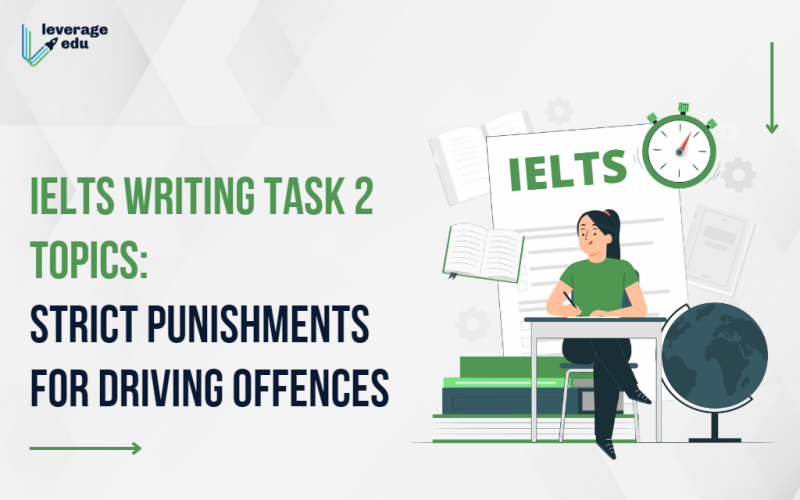Q – Are strict punishments for driving offences the key to reducing traffic accidents or are other ways necessary? Give your opinion.
A – The increase in accidents and the daily deaths they inflict has made road safety a major worry for the public. People’s opinions on how to make roads safe differ, and while I think severe regulations should be in place to punish drivers who break the law, a combination of other strategies would provide greater outcomes.
On the one hand, people appear to follow a law or regulation when they are aware that breaking it will result in harsh penalties. For instance, when a more severe penalty was implemented in certain Asian nations, pedestrians who had previously crossed the road began using the underground tunnel. According to this viewpoint, strong penalties and fines can undoubtedly increase road safety because they would make people more alert and fearful of the repercussions of breaking traffic laws. As a result, it is true that people are more likely to follow the rules if the punishment is severer.
On the other hand, there already are harsh penalties for driving infractions, such as suspension of the licence, financial penalties, and jail time. Despite this, there are more car accidents on the road each year. Because of this, I think that punishment alone cannot guarantee the security and safety of the roads. Additionally, a variety of other measures are needed. First, we must educate the public about the grave dangers that breaking traffic laws can pose to our safety. Second, standards for clearing the driving test must be established, and they should be made more pragmatic, particularly in developing nations where corruption can be exploited. Many youngsters receive driving licences without having their experience or skills evaluated, as is frequently observed. This should be absolutely prevented, and each driver should undergo new testing after a specified amount of time. Third, as stated in a recent Road Transport Authority report, unsafe vehicles shouldn’t be allowed to operate on public roads since they are more likely to be involved in collisions. Finally, a nation’s traffic system needs to be modernised, and additional speed traps and surveillance cameras need to be installed.
In conclusion, governments, along with experts, engineers, and automobile businesses, must maximise the provision of safety riding facilities in order to obtain the best results on this topic, even though laws must be defined.
Having trouble learning new words for IELTS? Just watch this video for some easy tips 
Download the Leverage IELTS App today.
- IELTS Writing Task 2 Topics – Does advertising encourage us to buy things we don’t need or does it tell us about new products that may improve
- IELTS Speaking Topics – Describe a person you follow on social media
- IELTS Writing Task 2 Topics – Traditional approach vs experiential learning in the modern classroom
Need help preparing for IELTS? Check out the best IELTS preparation courses in the market offered in a live training environment by trusted educators. If you want help studying abroad, call 1800-572-000.

 One app for all your study abroad needs
One app for all your study abroad needs
























 45,000+ students trusted us with their dreams. Take the first step today!
45,000+ students trusted us with their dreams. Take the first step today!


